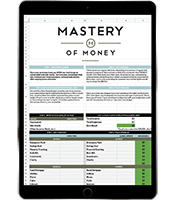For the record, car care is not an emergency.
Cars, as much as they might be an asset/worth something if you want to sell it, are really a big honkin’ liability. They cost money. And it’s the least fun money to spend.
If I can help you understand in this article what it takes most people years (um, me) to learn about their car, then I’ve done my duty.
Find a Reliable Mechanic
Mechanics tend to get a bad rap — and that’s because some of them fix things on your car that either don’t need fixing to squeeze more money out of you, or they suck at their jobs and you pay them for half-hearted work.
Ugh, neither of those are good things.
Find a mechanic who will explain what’s wrong with your car in simple terms, allowing you to ask questions and learn what they’re talking about. My mechanic is amazing. Everyone at his shop is dedicated to quality work.
Sure, I think I pay a bit of a premium dollar-wise by going to them, versus some other shop, but I also know that my car is being thoroughly cared for.
The best part? I don’t have to ask my dad all of these questions. It’d be great if I could, but he lives 70 miles away, and there’s a point where I need to take care of my own car and not rely on him to do it for me.
Shout out: Major props to my dad for looking after my car all through high school and college! What is an oil change, anyway? 😉
My mechanic shop not only assesses my car and explains things to me (in dumbed-down, non-mechanic-person terms) — they do this before they make any repairs. That’s right, they let me make the final call on what gets fixed. And because they’re so good at explaining things to me, I actually know what I’m paying for. I’m not handing over my credit card blindly.
And when I tell them that I don’t have all the money in the world to make all of the changes right now, they give me an idea of what it’ll cost me the next few times I’ll come into the shop. Usually they know what kind of maintenance needs to happen, depending on the miles your car has racked up, so they should be able to give you a ballpark idea. Otherwise, general oil changes are easy peasy and inexpensive.
They give me room to ask questions, which is great, because I know nothing about cars. Nada.
Understand That Maintenance is for the Health of Your Car
Speaking of lack-of-car-knowledge, the biggest lesson I’ve had to learn about owning a car is that maintenance is imperative for the health of your car.
Now, “maintenance” sounds super vague, but in short, it’s those changes/fixes that need to happen for your car to live a long, healthy, safe life.
Just like a human needs to exercise and eat healthy food on a regular basis (say, like an oil change for a car), you also go to the dentist knowing there will be some bigger-than-usual expenses to keep your teeth healthy longer, like X-rays and fillings and whatnot.
For your car, it needs special fluids flushed out and refilled, old belts need replaced, etc. Your car especially needs this at high mileage milestones. For my Honda CR-V, it needed a lot of maintenance at 120,000 miles, per the vehicle manufacturer’s instructions and recommendations.
And I get it: it’s oppressive following the instructions of a manufacturer to spend more money on your car, because it feels like they’re just trying to wring you out for all the dollars you’ve got. But, lemme tell you, it’s so your car can run a long time — and safely.
Sure, the investment in maintenance is not fun, and it can add up to a lot of money, but the peace of mind you’ll have on the road knowing that your car is safe and tuned-up properly will hopefully be worth it.
On another note, the reality is that sometimes you don’t want to invest in your car, especially if you know you’re planning to buy a different car soon. In that case, take a season to reallocate your maintenance funds toward saving up for a different car.
Owning a car will cost you money. Be proactive and don’t be surprised when you have to foot some bills.
Save Up and Expect to Pay for Car Care
I know for a fact that my car will cost me money. The question is how much and when.
My mechanic has recommended I save up $100 per month for car maintenance.
That’s a lot for me, so I budget $40-$50 per month, plus any mileage checks I get from work. (Did you know that mileage checks are intended to help cover your expenses for gas and car depreciation? Yep, it’s true.)
I “rollover” my car maintenance budget from month-to-month in Mint. It saves it up for me, so I have it allocated in my checking account for when I need to pay my mechanic.
If I don’t have enough money already saved within my “Service & Parts” budget in Mint when the time comes to pay my mechanic, I pull the rest of the funds from other budgets from within that month.
This might mean spending a little less on groceries or going out with friends, but I’m in favor of paying for as much of my bills from within my monthly income as possible (versus racking up credit card debt or pulling it out of savings).
This is a hashtag #ownup moment of being an adult. You’ve got to say “no” to some things, even if means you have to spend your hard-earned dollars on annoyingly-responsible things like radiator fluid and timing belts.
You’re not alone. We all have to do it.
Cars cost money — there’s no way around it. Have you budgeted for car care?

Allea Grummert is on a mission to live life as savvy as humanly possible and bring millions of others along for the ride. She blogs about finance and life at www.AskAllea.com and has stopped searching for a mechanic boyfriend now that she found "Mr. Right" (her mechanic... not her boyfriend). Allea is a Millennial Money Expert at www.MasteryOfMoney.com and loves coaching clients to greater cash flow.




